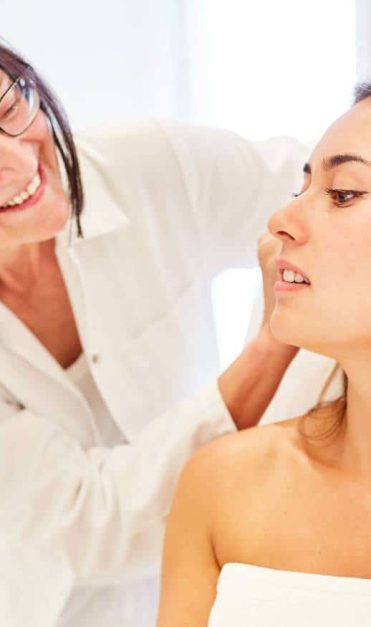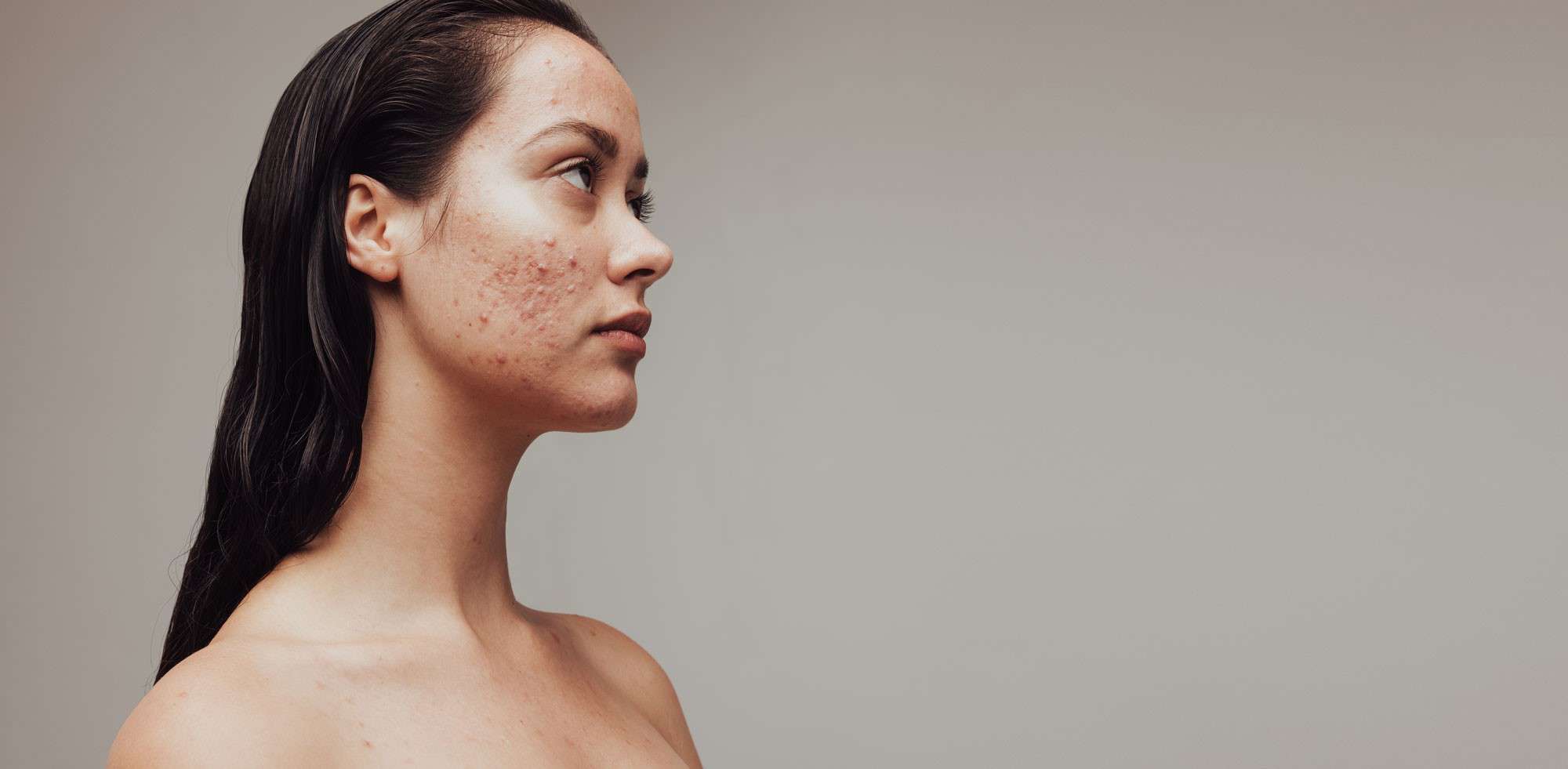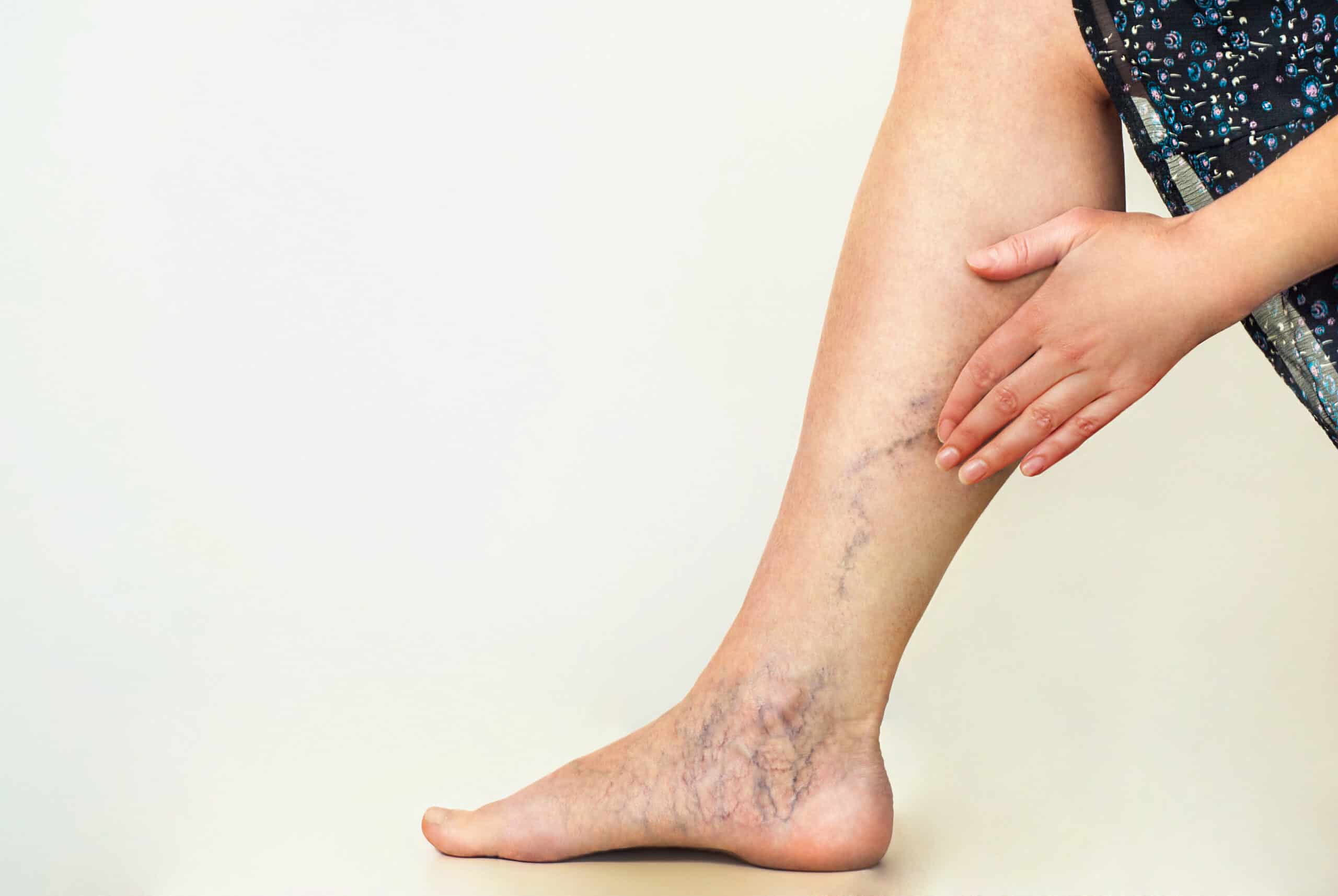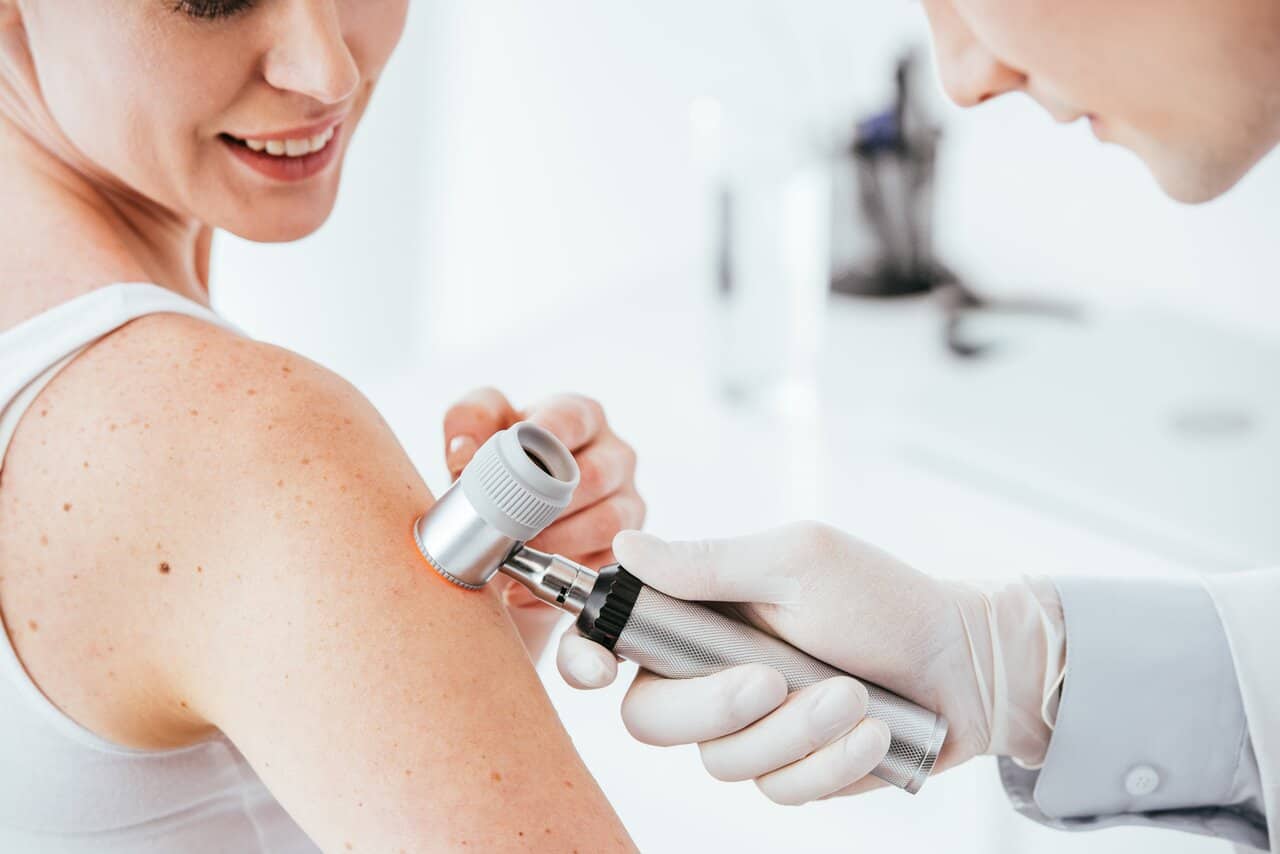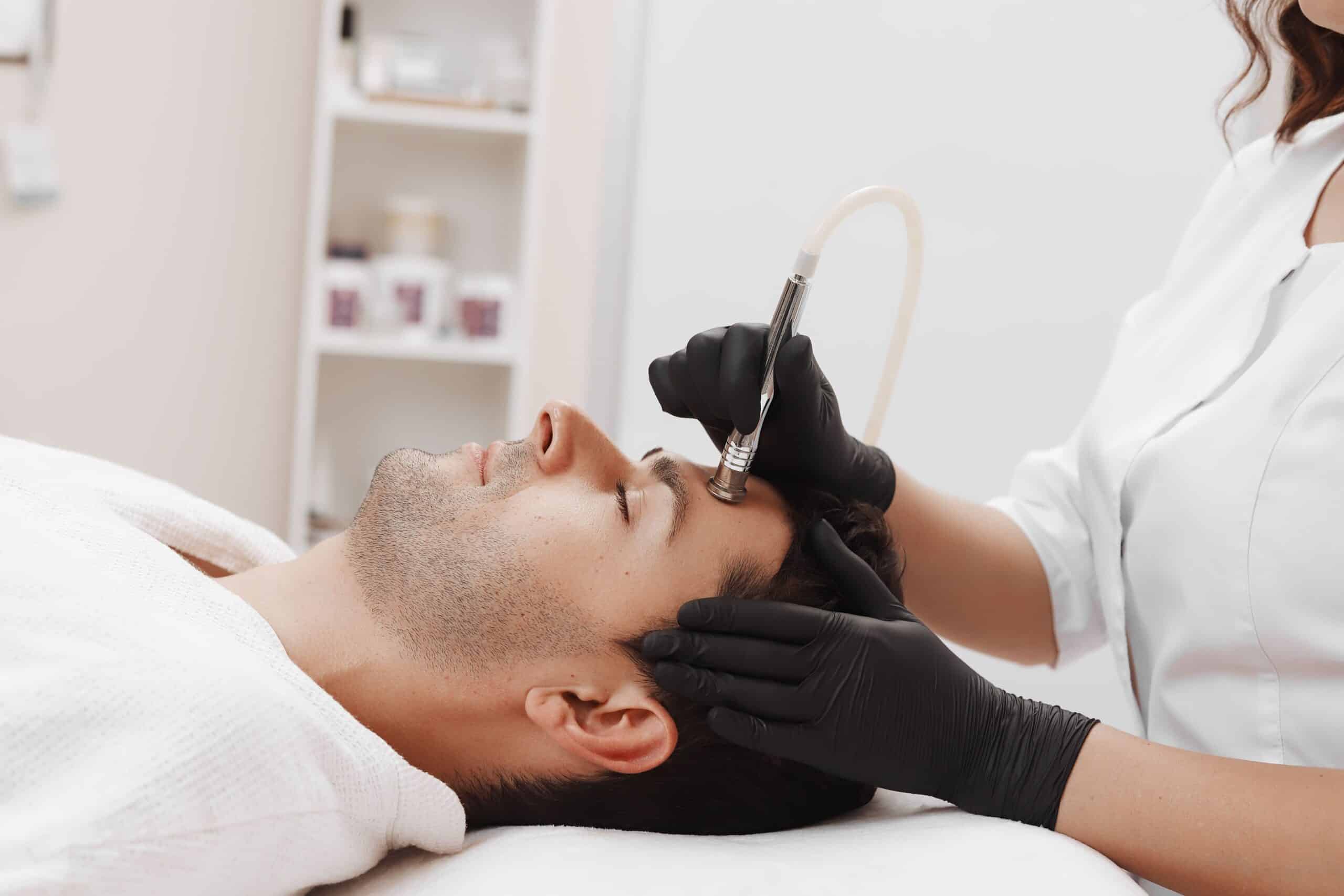Acne is one of the most common skin conditions, affecting a significant percentage of the population. Despite its prevalence, few people know that June is acne awareness month. This presents a perfect opportunity to delve deeper into the condition and answer some of the burning questions that most acne sufferers have.
What is acne? What causes it? How can it be prevented? These are all questions that need to be addressed, and this month offers the perfect opportunity to do so. With the right knowledge, you can combat acne and experience clearer, healthier skin.
Acne Awareness Month 2023
Acne Awareness Month was launched to combat the negative stigma surrounding this common skin condition. By dedicating a month out of the year to discussing and raising awareness for acne, individuals who suffer from this condition can feel more comfortable sharing their experiences.
Additionally, medical professionals and dermatologists have an opportunity to educate the public about potential treatment options and methods for managing and reducing acne. As we approach Acne Awareness Month 2023, we aim to continue this important conversation and provide valuable information to those affected by this often-misunderstood condition. Let’s work together to reduce the stigma and create a supportive environment for those struggling with acne.
Firstly, What Is Acne?
Acne is a common skin condition that can impact anyone. Whether you’re a teenager or an adult, this skin complaint is no stranger. Often, there are a lot of misunderstandings surrounding acne, and it can be confusing to know what’s true and what’s not.
One myth is that pimples are only a result of unclean skin, but that couldn’t be farther from the truth. Another myth suggests that people with acne should avoid wearing makeup, but that’s not necessarily the case. In reality, Acne is caused by clogged pores and hair follicles, resulting in red spots or zits on the skin. It’s vital to look deeper into this skin condition and understand that it comes in different forms. Knowing the various types of acne can help you to treat the condition better. The first distinction when it comes to acne is between inflammatory and non-inflammatory types.
Inflammatory Acne
Inflammatory acne is characterised by red, swollen spots on the skin, which can be painful. This type of acne occurs when dead skin cells, sebum and bacteria become trapped in pores, causing inflammation. There are four main types of inflammatory acne:
- Papules are small, tender red bumps, while pustules are also known as pimples.
- Nodules are larger, painful bumps under the skin
- Cystic Acne consists of bumps filled with pus beneath the surface of the skin.
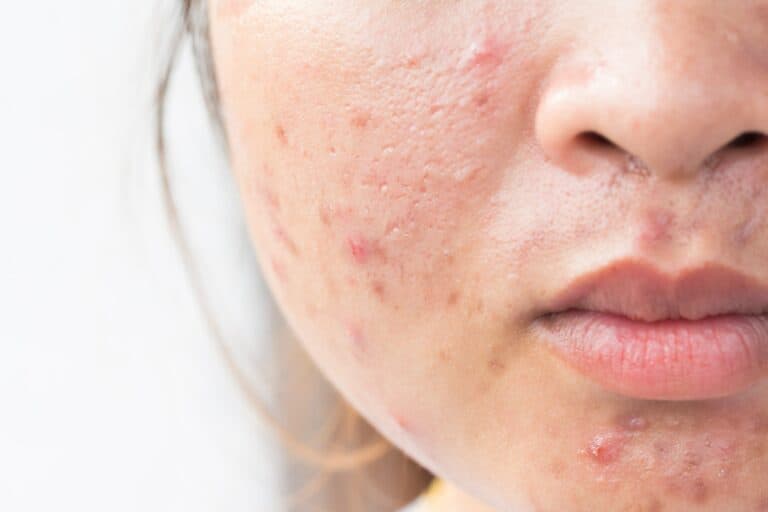
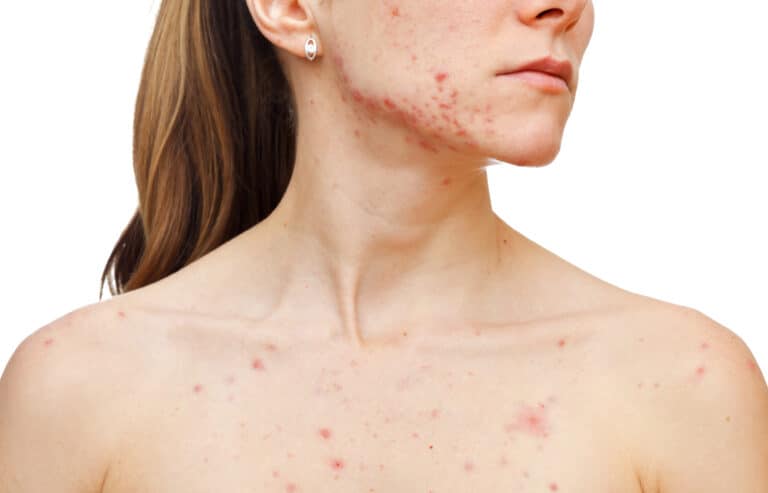
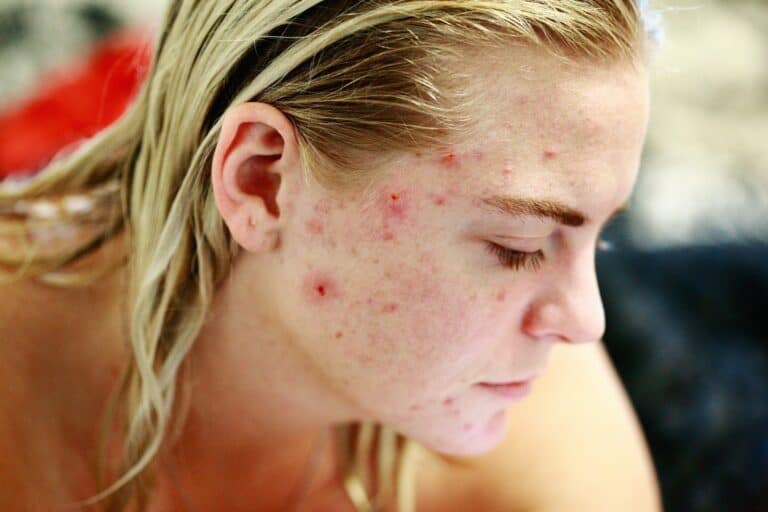
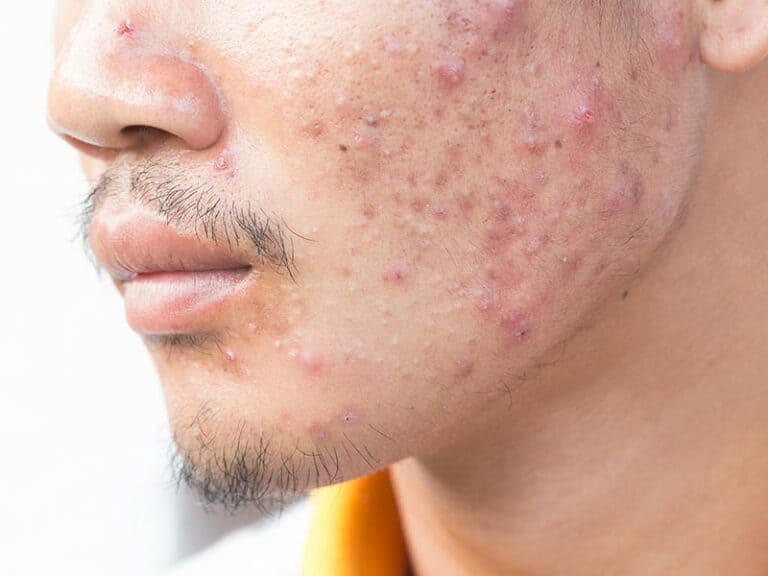
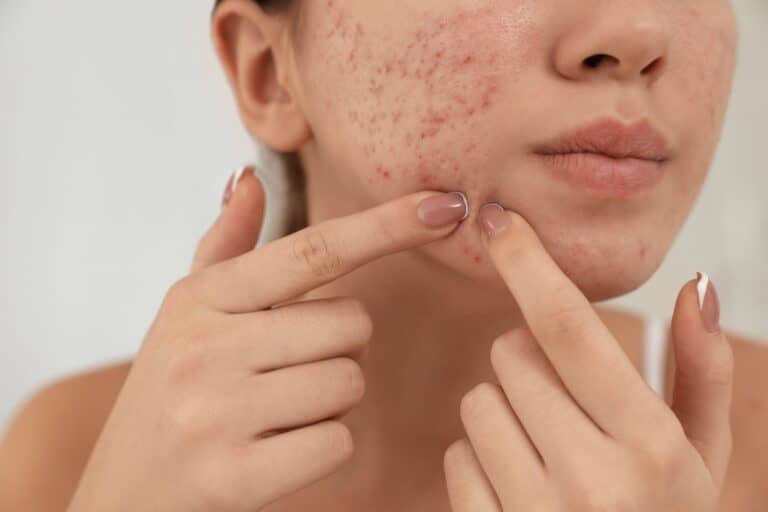
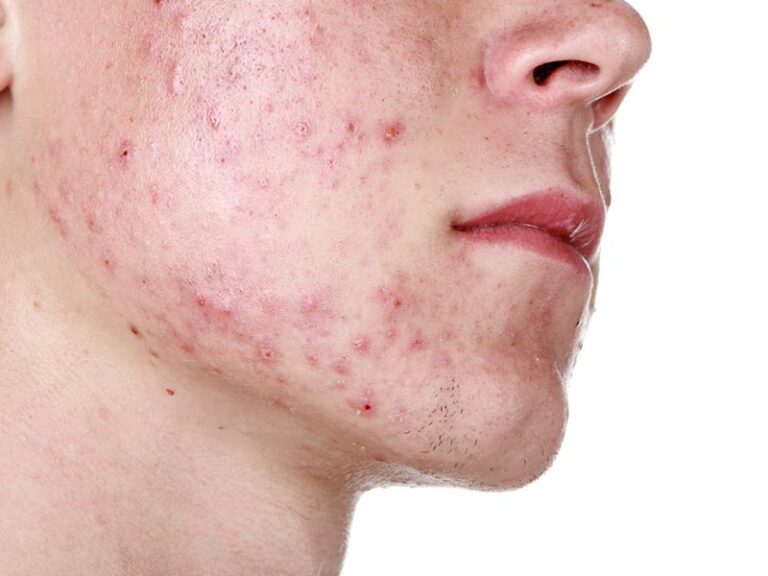
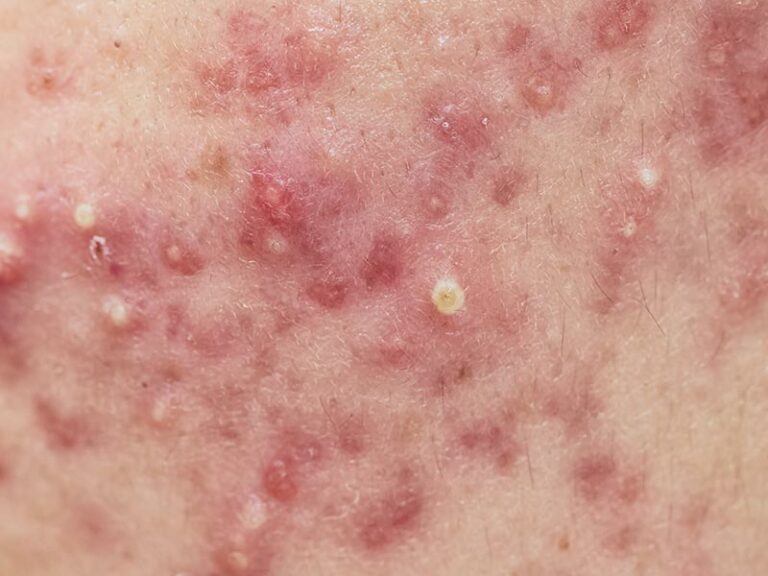
Non-Inflammatory Acne
While many people associate acne with red, inflamed bumps and spots, non-inflammatory forms of acne are just as common. These forms of acne, known as whiteheads and blackheads, are typically less noticeable than their swollen counterparts.
Whiteheads occur when pores become clogged and closed, while blackheads are caused by clogged pores that remain open. In both cases, dead skin cells, bacteria, and sebum from the body’s sebaceous glands are trapped inside. While acne on the face is often the most visible, it can also occur on the back and chest, and all types of acne have the potential to leave permanent scarring.
Additionally, the emotional toll of acne should not be underestimated. The skin condition often makes people feel self-conscious, and in severe cases, some acne patients may even develop depression and anxiety.
What causes Acne?
While many people incorrectly assume that acne is caused by dirty skin, the truth is that it is the result of a combination of factors. Contributing causes may include genetics, hormones, lifestyle choices, and even stress levels.
At the root of the issue are the sebaceous glands found in all bodies, which produce natural oil. When these glands produce too much oil, pores can become clogged, and bacteria can become trapped in the skin. The result can range from blackheads and whiteheads to deeper, more painful cysts. By understanding the underlying causes of acne, individuals can take steps to keep their skin healthy and manage the condition effectively.
Acne affects many teenagers during puberty. Around 95% of teenagers will experience an increase in spots due to their changing hormones. Unfortunately, for some women, the struggle with acne will continue into their adult years, especially during pregnancy, when hormones continue to fluctuate. While we cannot control the hormonal changes that cause acne, we can take steps to reduce our risk of breakouts by making healthier choices and avoiding certain triggers.
Smoking, stress and a diet high in simple sugars have been linked to an increased risk of acne. By making simple changes to our lifestyle and diet, we can help reduce our risk of experiencing this frustrating condition.
Treating Acne: The Top Acne Treatments
Acne can be a frustrating skin condition to deal with, but luckily there are several treatment options available. It’s important to consult with a dermatologist to determine which course of action will work best for your specific skin type and severity of acne. There are four main treatment routes you can explore: topical medications, oral medications, physical treatments, and lifestyle changes.
Topical Treatments For Acne
For those struggling with acne, topical treatments can offer some relief. There are a variety of creams, gels, and lotions available that can be applied regularly to help reduce the appearance of acne. However, it is important to understand that different types of acne require different types of active ingredients. For non-inflammatory acne, salicylic acid can be effective.
On the other hand, inflammatory acne requires substances that can reduce swelling and inflammation, like benzoyl peroxide. It is essential to speak to a qualified dermatologist or medical professional before trying any topical treatment to ensure it is suitable for your skin.
Topical retinoids, topical antibiotics, and azelaic acid are some other active ingredients that may also be effective for treating acne.
Acne Hormonal Therapy
Acne can be a painful and frustrating experience for anyone, and for women whose breakouts coincide with their menstrual cycle or are caused by hormonal imbalances, it can be especially problematic. Hormonal therapy, such as Spironolactone, may be recommended in these cases. This steroid drug works to prevent excess sodium from building up in the body, which in turn can reduce the hormonal influence on the sebaceous glands. In addition to helping regulate oil production in the skin, Spironolactone also has the added benefit of reducing unwanted hair growth and preventing hair loss caused by hormonal imbalances. If you’re struggling with acne that seems to be linked to hormonal issues, it may be worth discussing hormonal therapy with your healthcare provider.
Antibiotics For Acne
Often used in conjunction with topical creams or lotions, antibiotics can help to reduce the severity of more stubborn cases of acne. If your doctor thinks that antibiotics are a suitable option for your particular case, then you may be prescribed a course of tablets to take for around 3-6 months. The good news is that many patients find this approach to be effective and well-tolerated, providing a potential solution to a distressing and confidence-sapping condition.
Microdermabrasion For Acne
For those who struggle with acne, microdermabrasion is an effective treatment that can improve the appearance of the skin while combating breakouts. This treatment works by removing the outer layer of skin through the use of tiny crystals, stimulating new cell growth and leaving your skin looking brighter and softer. It is a safe and efficient procedure that is suitable for all skin types. Typically, a complete course of treatment will take between 3-6 sessions, each lasting approximately 45 minutes. By undergoing microdermabrasion, individuals with acne can achieve clearer, healthier-looking skin.
Chemical Peels For Acne
If you’re struggling with acne, you might want to consider chemical peels. These treatments work by gently removing the outer layer of your skin, which in turn stimulates new skin growth. As a result, you can expect to see a reduction in oil, blackheads, and acne breakouts. It’s important to note that there are different levels of chemical peels available, with the mildest being the superficial peel. This type of peel is specifically designed to minimise acne breakouts by reducing blackheads, oiliness, and unblocking pores. Whether you’re looking to get rid of stubborn acne or simply want to improve the overall appearance of your skin, a chemical peel could be just what you need.
Isotretinoin For Acne
For those who have tried other treatment options with no luck, Isotretinoin can be a game-changer. As a medication that is only prescribed by dermatology specialists, it is highly effective in treating cystic acne and other severe forms of acne. By following a carefully tailored regimen under the guidance of a trusted dermatologist, patients can achieve significant results in clearing up their skin and regaining confidence in their appearance. If you are struggling with severe acne, consider speaking with your dermatologist about the potential benefits of Isotretinoin treatment.
How To Manage Your Acne
For many people, dealing with acne can be a frustrating and difficult process. However, this acne awareness month is the perfect time to take control of your skin and work towards finding a solution that works for you. Remember, everyone’s skin is different, so it’s important to work with a dermatologist to explore your options and find the right treatment plan for you.
But there’s no need to stop there – there are other steps you can take alongside your medical treatment to help manage your acne. By being proactive and informed about your skincare routine, you can take control of your acne and achieve clearer, healthier skin.
How To Prevent Acne Breakouts
Acne breakouts can be frustrating and difficult to manage, but there are steps you can take to prevent them. One key factor is controlling environmental and lifestyle causes. A targeted face wash that helps to clear blocked pores can be beneficial, while oily and perfumed moisturisers should be avoided.
Wearing make-up for long periods can also contribute to breakouts, so try to reduce the amount you wear and allow your pores to breathe. However, it’s important not to over-wash your face as this can cause further irritation. Stick to a cleansing routine of twice a day, and after any exercise that leaves you sweating. Avoid intense exfoliation and scrubbing, as this can lead to scarring.
Remember, whatever you do, do not pop your acne spots – this can make the situation worse.
Should I visit a Dermatologist For My Acne?
Acne can be a frustrating and often embarrassing condition to deal with. But with so many over-the-counter treatments available, it can be difficult to know where to start. That’s why visiting a dermatologist can be a game changer for those looking to tackle their acne head-on. With their vast knowledge of available treatments, a dermatologist can help you find a solution that is tailored to your specific needs. Plus, their consultation can shed light on any underlying causes of your acne and provide you with the tools you need to prevent future flare-ups. So if you’re struggling with acne and feel like you’ve tried everything, consider reaching out to a professional dermatologist who can provide you with the guidance and expertise you need to finally achieve clear, healthy skin.
Why Choose Stratum Dermatology Clinics To Treat Your Acne?
At Stratum Dermatology Clinics, we understand the negative impact acne can have on your confidence. That’s why we offer a range of highly effective acne treatments that are personalised to your individual needs.
Our team of experienced dermatologists work with the latest techniques and technologies to provide safe, effective and long-lasting results. You can trust us to provide you with the best acne treatment available. Our clinic is regulated by the Care Quality Commission, and we are part of the British Association of Dermatologists. With top ratings from our patients on Doctify, you can be sure that you’ll receive the best care possible. Let us help you regain your confidence today.
